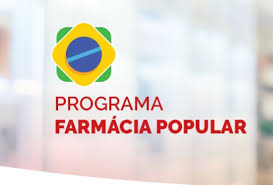Integralidade negada, cuidado negligenciado: o estigma da doença mental no Programa Farmácia Popular do Brasil
DOI:
https://doi.org/10.25118/2763-9037.2025.v15.1427Palavras-chave:
doença mental, estigma, medicamentos psicotrópicos, política de saúde, programas de saúde pública, farmácia popularResumo
Este artigo discute a ausência de psicofármacos no Programa Farmácia Popular do Brasil (PFPB), uma iniciativa para o acesso a medicamentos essenciais. Apesar de sua longa trajetória e impacto significativo, o programa ainda não inclui medicamentos psiquiátricos em sua lista, refletindo um estigma estrutural em relação às doenças mentais nas políticas públicas brasileiras. O texto analisa as consequências dessa exclusão para pacientes psiquiátricos, que enfrentam não apenas marginalização social, mas também barreiras ao acesso a tratamentos adequados. A indisponibilidade de psicotrópicos essenciais compromete a estabilidade clínica desses pacientes, aumentando hospitalizações, reduzindo a expectativa de vida e contribuindo para desfechos fatais evitáveis. Além disso, a expansão do elenco de medicamentos do PFPB em 2025, com a inclusão de 41 novos itens, evidencia a contínua exclusão da saúde mental. O artigo reforça, assim, a necessidade urgente de políticas mais inclusivas, reconhecendo os psicofármacos como parte essencial do cuidado integral em psiquiatria.
Downloads
Métricas
Referências
.1. Brasil. Lei nº 10.858, de 13 de abril de 2004. Autoriza a Fundação Oswaldo Cruz - Fiocruz a disponibilizar medicamentos, mediante ressarcimento, e dá outras providências. https://www2.camara.leg.br/legin/fed/lei/2004/lei-10858-13-abril-2004-531689-norma-pl.html
.2. Brasil. Decreto nº 5.090, de 20 de maio de 2004. Regulamenta a Lei no 10.858, de 13 de abril de 2004, e institui o programa "Farmácia Popular do Brasil", e dá outras providências. https://bvsms.saude.gov.br/bvs/publicacoes/decreto5090farmaciapopular.pdf
.3. Brasil, Ministério da Saúde. Portaria GM/MS nº 6.613, de 13 de fevereiro de 2025. Altera o Anexo LXXVII da Portaria de Consolidação GM/MS nº 5, de 28 de setembro de 2017, para estabelecer a gratuidade dos medicamentos do elenco do Programa Farmácia Popular do Brasil para o tratamento de incontinência urinária e diabetes mellitus associada a doença cardiovascular, extinguindo a modalidade do copagamento do Programa. https://pesquisa.in.gov.br/imprensa/servlet/INPDFViewer?jornal=515&pagina=67&data=14/02/2025&captchafield=firstAccess
.4. Brasil, Ministério da Saúde. Portaria de Consolidação nº 5, de 28 de setembro de 2017. Consolidação das normas sobre as ações e os serviços de saúde do Sistema Único de Saúde. https://portalsinan.saude.gov.br/images/documentos/Legislacoes/Portaria_Consolidacao_5_28_SETEMBRO_2017.pdf
.5. Goffman E. Estigma: notas sobre a manipulação da identidade deteriorada. 4. ed. Rio de Janeiro: LTC; 1988.
.6. Corrigan PW, Watson AC. Understanding the impact of stigma on people with mental illness. World Psychiatry. 2002;1(1):16-20. PMID:16946807 - PMCID:PMC1489832
.7. World Health Organization. Mental health action plan 2013-2020. Geneva: World Health Organization; 2013. Disponível em: https://www.who.int/publications/i/item/9789241506021
.8. World Health Organization. World mental health report: transforming mental health for all. Geneva: World Health Organization; 2022. https://www.who.int/publications/i/item/9789240049338
.9. Brasil, Ministério da Fazenda, Secretaria de Previdência. Adoecimento mental e trabalho: a concessão de benefícios por incapacidade relacionados a transtornos mentais e comportamentais entre 2012 e 2016. Brasília: Ministério da Fazenda; 2017. (1º Boletim quadrimestral sobre benefícios por incapacidade). https://sa.previdencia.gov.br/site/2017/04/1%C2%BA-boletim-quadrimestral.pdf
.10. Brasil, Ministério da Previdência Social. Anuário estatístico da Previdência Social - AEPS. Brasília: Ministério da Previdência Social; 2023. https://www.gov.br/previdencia/pt-br/assuntos/previdencia-social/arquivos/aeps-2023/aeps-2023

Publicado
Como Citar
Edição
Seção
Licença
Copyright (c) 2025 César Augusto Trinta Weber, Antônio Geraldo da Silva

Este trabalho está licenciado sob uma licença Creative Commons Attribution-NonCommercial 4.0 International License.
Debates em Psiquiatria permite que o (s) autor (es) mantenha(m) seus direitos autorais sem restrições. Atribuição-NãoComercial 4.0 Internacional (CC BY-NC 4.0) - Debates em Psiquiatria é regida pela licença CC-BY-NC































